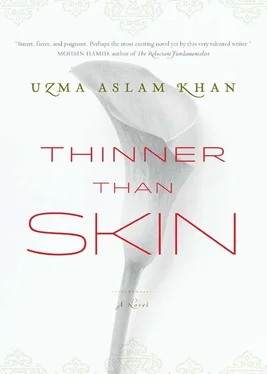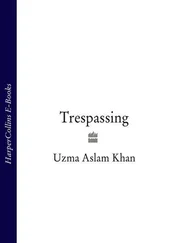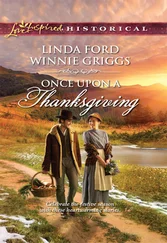The gender would have been specified .
Wouldn’t it?
Wouldn’t it? I asked the boy. He stood by and waited till I had finished before carrying me back inside the hut to the woman with green eyes and the man who healed without words.
It might have been days, even weeks — I did not ask to be shown the time — before I could feel the contours of my face again. I could take a shallow breath. I could sip a little soup.
I asked the girl who told me about the flowers of arusha for the way to the nearest bus stop, or even if she knew of a driver who might carry me south to the highway in his jeep, or if she knew anyone at all, a kind soul to take me home. She smiled with warmth, perhaps even pity. Then she called her brother, who had carried me to the cattle pen, possibly for weeks. The brother’s expression was the same as hers, except, perhaps, he exuded a little dismay. He called his father. The father had long slender hands that were cool but my forehead was cooler. He shook his head; I supposed it meant I needed no more cures, at least none his fingers could provide. He called his wife. She entered the room smelling of woodsmoke and sweet oils. She offered me cheese. Good for the spirit, she said. I accepted a small piece, and reiterated the question I’d put to her children and to her husband, but which the whole family was clearly avoiding. At my insistence, and with a little more cheese, she answered me at last. Home? You want to be taken home? There is only one time to come home, and that is after death.
I turned my back to her then. I could still smell her scent of woodsmoke and oil, perhaps it was almond oil. She said I should stay till I felt strong enough to — she hesitated. To come home? I thought. No, she could not say that now, because then I would be dead.
She kept standing there, basked in a quiet like infinity. Instead of completing her sentence, she gave me another, sweeter proverb, one I will never forget, though I may never have use for it now. Beware the guest one does not feed . I’d heard Irfan say it once, on the shores of a lake, after we’d eaten a pear, after the honey. After Farhana had left with the girl. I hadn’t thought to ask him what it meant. I asked my hostess now. She explained that it referred to people who did not do things from the heart, or, even worse, who ignored the heart entirely. The heart is a guest, she stated in a smooth, liquid voice. It must be nourished, made welcome.
So is that what Irfan had decided to do? Feed his guest?
I lay there hunched on the cot — vaguely aware that this was likely the only cot they owned — my back to the woman who smelled of almond oil. I faced a window through which I could see an apricot tree. Hopping between each fur-eared fruit was a warbler, its delicate yellow throat vibrating when the woman spoke, pausing when she paused. The heart is a guest, she kept on in a voice that was as still and rich as the surface of a lake. It deserves the best room in the house.
It was time to lay the needles down. Fresh pine needles for a clean floor and a bed softer than most things, except feathers, or flesh. Her flesh was ruddy as a peach and the child would rest her head of thick brown curls against it when she tired of gathering the needles and the branches. The sheet had to be propped securely if the house was to stay dry, Maryam explained, though she need not have. The girl, at age four, gathered all the materials swiftly without being asked, and brought them to her mother.
Her son had candles. He would be leaving this year. The candles were not too sensible — it was windy here, at the edge of the lake, and it rained — but he said they were better than the little oil lamps and so they lit the long wax sticks with threads that sizzled at the slightest change in weather, while she laughed in private, for her son would cut the wicks and blow the flames back to life with some tenderness and a lot of pride.
Maryam watched them, her two remaining children, Younis and Jumanah. They carried the candles out into the night after the tents were secured.
They had taken longer to reach the mountains this year. After the earthquake, they all moved more slowly, and besides, they had been forced to change their route. Last year, they had camped at the foot of a glacier, in potato fields that ripened swiftly under the blanket of steaming dung the cattle bestowed. But during the monsoons, the fields had been washed away. It had happened plenty of times before, though never like this, and in her mind, she could hear it, the way the glacier groaned. Done with keeping all that pressure locked inside, it let the world feel its pulse, taking the fields, the homes, the cattle, and the grain. When the earthquake buckled the land, it left behind a small artificial lake. They had been forced to trek around this.
They had also taken longer to leave the plains. A part of her had feared they would never leave at all, and she still could not entirely believe that they were here, nor that her children were slipping out into the night, in secret, excluding her, two candles, two whispers, and one destination, which she believed she could guess. She watched them go. She had to let them go eventually.
Down in the lowlands, the convoys had also left. They left soon after Fareebi, the shapeshifter, was found. They left as silently as they came: every man in uniform and spy in plainclothes, or so the people said. They had been replaced by different convoys, carrying food and blankets for the shocked survivors who stared past the cameras and far into the heavy dust of their past lives. Balakot is completely lost , they said. Maryam had never heard so much terror, or breathed so much death. The goddess had finally unleashed upon their valley the full weight of her wrath, and more men, women, and children than Maryam had ever seen now lay buried beneath it.
Even now, months later, she could do no more than isolate a few details of their combined devastation, like the way she had been watching the buffalo Noor in the forest just before it happened. Noor’s eyes had begun to roll high into her head. And her tail! It did not swat her back so much as stand upright, like a snake, jerking and twitching, as though about to drop! Maryam had been staring at the monstrous movements of her most placid beast when Makheri, the goat with the too-high teats, rammed her from behind, saving her life. In the space where Maryam had been standing crashed a pistachio tree. How could it be? She had been harvesting the nuts of that tree not two weeks earlier. Noor now lay beneath it. Her tail still twitching. A man from Laila’s dera pulled her away from the sight. And as they ran, so did the world.
But up here in the mountains, even this year, time kept defiantly still. Lake Saiful Maluk lay slick and dark, like a cold, sleepy eye. It had kept the eye shut through the wretchedness of the winter, and now, in spring, it was coming awake, lapping the shores beneath the two lovers, the Queen and the Nude. Tonight, Maryam could feel the lovers at rest. They would be watching her children, and watching the tents, but they would have no reason to complain. Except, perhaps, when they noticed that three tents were missing. The first for the family of the boy found in the waterhole last year, the second for the boy who was never found, the third for the family that was crushed by a boulder when the earth moved. The first two families had left for the city, the husbands and remaining sons to work as thekedars, loading and unloading the gunny bags of grain from state farms, the wives and daughters to pull all their silences closer to their now-sedentary hearts. The space for all three tents lay bare.
There had been other deaths, even before the earthquake, and who knows if the goddess had played a hand in these too. A shopkeeper beaten to death by policemen for withholding information. The information he withheld was his identity. There were no papers to prove it, the police claimed. Who was he? To which state did he pledge allegiance? He had no papers to answer for him. And there was a round-up, all the people of the valley — the sedentary, the nomadic, and everything in-between — had to show their identity papers. Maryam had pulled out every scrap they ever owned. Deeds showing permission to graze; taxes paid; materials leased each autumn and one summer, for a temporary home. But there was no proof of her birth. Her husband’s, yes, and he could not remember how and from where the proof had come, it was a gift from God, that little rectangle with his thumbprint and his name. But Maryam had none. The men had reached for the closest thing they could find. Younis. They pulled his ears and slapped his head, again and again, till his neck hung limp and she screamed and beat her wrists against the hard floor (including the wrist that never again healed). When he fell, and they began to beat his back with their boots and their rifles, she saw the boy in the waterhole, and said anything, take anything you want but the children . They took the filly. Loi Tara, with the coat the color of sunset in a yolk. Taken in her third year, still tethered to her shell, still only a mare in name. She had been nuzzling the buffaloes, the rain-kissed leaves, and those who let her go.
Читать дальше












